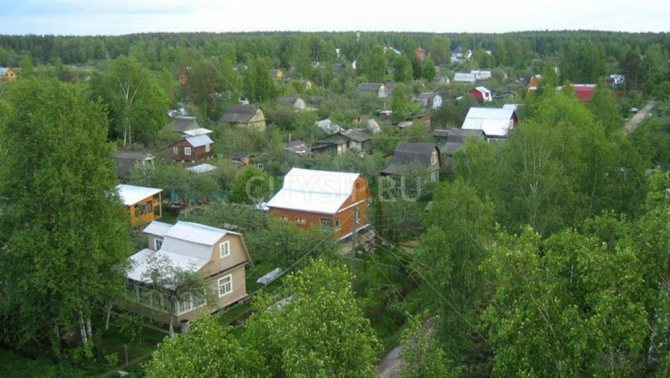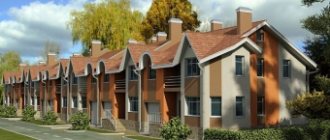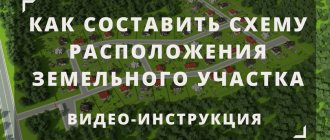Definition of DNP
What it is?
Country non-profit partnership is considered the most promising area in the field of country real estate. There is increasing interest in DNP from people who want to buy a country house or dacha. Partnerships are created in two types of areas:
- Existing settlement;
- Agricultural land.
REFERENCE. The main goal of the DNP is to provide legal and everyday assistance to the members of the association.
Important decisions are subject to agreement with all members of the partnership. This eliminates the possibility of adverse consequences.
What are individual housing construction, SNT, DNP, what are the pros and cons?
On what land can you build a cottage, and on what land can you build a dacha? The idea of building your own housing is becoming increasingly attractive in the eyes of Russians. Living in your own home, close to nature, in an environmentally friendly place is not only pleasant, but also good for your health. Building a house, as you know, begins with finding a suitable site on which your pastoral idyll will be embodied. And here the first collision of dreams with reality occurs. The buyer is faced with a large number of legal subtleties, which can cause confusion for a person without special training.
Individual housing construction, DNP and SNT - what does it mean and what is it used with?
The first thing a beginner has to get acquainted with is the obscure abbreviations IZHS, DNP, SNT. Under these mysterious letters are hidden plots of land for various purposes. So, IZHS stands for “individual housing construction”. As the name suggests, this land is intended for the construction of private houses and is located within the boundaries of populated areas.
SNT (garden non-profit partnership) and DNP (dacha non-profit partnership), on the contrary, can only occupy agricultural land (although, according to the law, in some cases, DNP plots can be located on the lands of residential settlements).
The status of the site is an important thing. Each of the abbreviations has its own features of use, pros and cons. Ultimately, the status of the future building and the possibility of its use as a full-fledged market instrument depend on the status of the site.
We advise you to treat the purchase of a plot with complete seriousness and awareness of the consequences of your choice.
Individual housing construction – plots for residential construction. Advantages and disadvantages
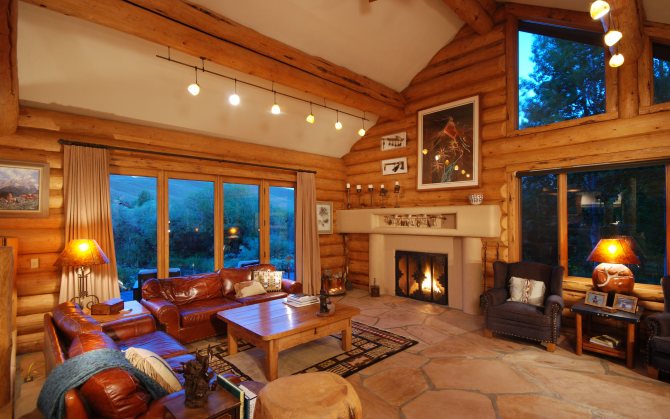
It is allowed to build a house on an individual housing construction plot with further registration. These plots are the most expensive and prestigious because they are located on the lands of settlements and are intended for residential construction. They have significant advantages, among which the most notable are the following:
- On this land you can build a residential building, a cottage, a mansion, in which you can register without any problems or difficulties, since it has an address. What does registration give? The first and most important thing is the opportunity to get a job. In addition, you can subscribe to periodicals and receive correspondence, but this is optional.
- Citizens living on plots intended for individual housing construction can count on being provided with a state social package - medical and educational services, shops, roads. They have the right to connect to city electricity and gas networks, sewerage and water supply.
- Weapon owners registered in a private home have the right to store their arsenal there.
- A tax deduction can be issued for such a house, since people will live in it.
- The largest banks in the Russian Federation accept plots of individual housing construction as collateral when obtaining a mortgage loan.
The disadvantages of plots for individual housing construction are a mirror reflection of their advantages:
- Plots for individual housing construction have limited sizes. Different regions have their own minimum and maximum standards for the area of such plots.
- Construction of a residential building requires coordination of the project with the responsible authorities and obtaining all required permits, including from local authorities, an architectural committee and a commission that will check the documents for compliance with current building regulations.
- The infrastructure required by law is not always fully provided. You have to look at things realistically - the free road promised by law may not be as wonderful as you imagined it to be.
DNP – plots for construction of a dacha
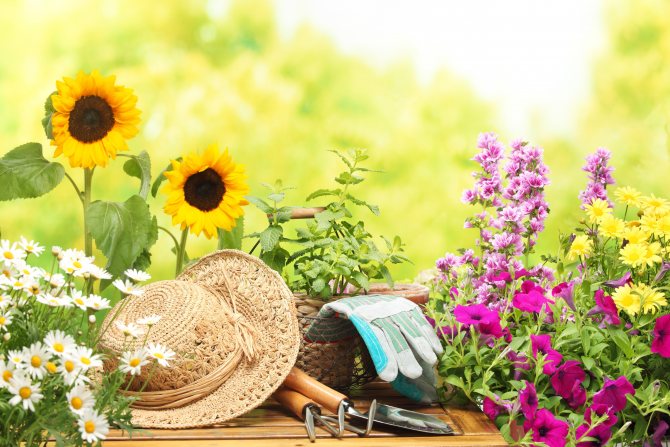
. Land intended for DNP is somewhat cheaper compared to plots for individual housing construction. Experts say there is approximately a 20% difference in their cadastral value. They are cut on lands that have a low bonitet (fertility) score. Such plots were originally intended for gardening activities and the construction of a country house. However, the adoption of a new law, which allows the allocation of plots for the organization of non-profit construction within settlements, has placed them almost on the same level as plots for individual housing construction.
The advantages of sites for DNP include:
- Relatively low cost compared to individual housing construction.
- If the site is located outside the city, you will be able to appreciate all the delights of rural life.
- If, on the contrary, the site is located within the boundaries of a city or town, you can try to register on it.
- Purchasing a plot in the DNP allows you to become a member of the partnership and have the right to vote in decision-making.
- A house built in the DNP does not need to be recognized as residential, even if it is strong enough to live in all year round.
The disadvantages of DNP are related to their agricultural purpose:
- Since the plots in the DNP are intended primarily for growing garden and vegetable crops, it seems problematic to build a permanent house.
- The provision of free roads, gas and water communications (and sometimes electricity) is not provided for by the DNP status. These services can be provided by commercial enterprises, but at the expense of the owners themselves. Accordingly, the cost of work increases many times over, and sometimes building a road to a dacha plot costs land owners an amount comparable to the price of the plot itself.
- It happens that the costs of creating infrastructure are included in the cost of plots, but land in such a place is very expensive.
- The decision of the Constitutional Court, adopted in 2008 in favor of the participants of the DPP, allows registration of residence permits in buildings erected on such sites. In principle, this is possible, but in reality it takes a lot of time and effort, and the result of the litigation is completely unpredictable.
- Kindergartens, schools, clinics and hospitals are not built on the territory of sites intended for child development. To get medical care or do shopping, you need to go to the nearest town.
- Banks are reluctant to accept land plots as collateral when applying for a mortgage.
- The DNP plot is intended not only for gardening, but also for building a summer house, so you will have to build a country house on it and register it as your property.
SNT sites are like DNP, only better
Plots for SNT, as a rule, are more expensive than DNP, since they are cut on lands with a higher bonitet (fertility level), but this difference is very relative. It is also believed that they are located in more convenient and picturesque places. But, again, these criteria are too subjective to talk about them seriously. Lawyers themselves admit that they poorly understand the difference between these categories of sites.
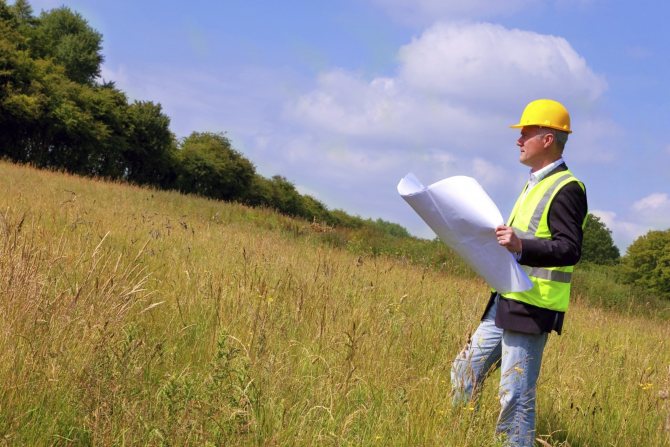
Lands with SNT status are more fertile than DNP
Among the advantages of SNT, we can mention that:
- These plots cost less than individual housing construction.
- They are located in rural areas.
- On the SNT site, you can not build a country house, but completely use the land for a garden.
The disadvantages of SNT land plots include the same disadvantages that are characteristic of DNP:
- The SNT status does not provide for the construction of roads and connection to communications. If owners want to have gas, water supply and sewerage on their plots, they have to pay for the amenities out of their own pockets, and very expensively.
- It is very difficult, and sometimes impossible, to register in houses in such areas. Despite the fact that the Constitutional Court recognized the right of owners to register in gardening partnerships, in practice it can be very difficult to implement.
- Banks are extremely reluctant to accept collateral in the form of SNT plots when applying for a mortgage.
- A house built on a SNT site will always be considered a dacha building, no matter how large and durable it may be. This means that its value if sold will be consistently low.
Now that you are familiar with the pros and cons of different land plots, it will not be difficult for you to decide which option is best for your plans.
Dacha non-profit partnership: pros and cons
DNP, in accordance with the law “On gardening, gardening and dacha non-profit associations of citizens” dated April 15, 1998, provides land to citizens for recreation with the right to erect buildings and grow crops.
Advantages of DNP sites:
- If the land is located within a village or city, it becomes possible to obtain registration;
- Lower cost compared to individual housing construction;
- A building does not require recognition as residential, even if it is suitable for living all year round;
- Opportunity to join the partnership when purchasing a plot.
The disadvantages of DNP are determined by its agricultural purpose. The installation of communication, gas networks, power lines, and road construction are not provided for by the dacha partnership status. These works are carried out by commercial enterprises at the expense of the owners of the land plots.
Other disadvantages of DNP lands:
- There is no construction of educational institutions, hospitals and clinics;
- Banks are hesitant to accept dacha partnership lands as collateral for a mortgage;
- The construction of a permanent house is problematic due to the agricultural status of the site.
Sometimes it happens that funds for the formation of infrastructure are included in the cost of the land plot, and it will have a fairly high price. DNP lands are intended not only for gardening activities, so the owner will have to build a house and register a property title for it.
What does SNT land mean?
Explanation SNT - gardening non-profit partnership. Its land category is the same as that of the DNT considered above. However, the cost of such plots will be different, since such a resource is considered more prolific. In addition, the lands in question are more often located in picturesque corners of the country.
Pros and cons of SNT
The horticultural non-profit partnership has the following positive aspects:
- more attractive price than individual housing construction;
- location of the plot next to a forest, pond, near meadows, etc.;
- wide possibilities for intended use (here it is allowed not only to plant a garden or vegetable garden, but also to build houses, cottages, or develop summer areas);
- the opportunity to use the services of schools, kindergartens, medical and various government institutions;
- availability of developed infrastructure;
- high liquidity of plots.
Among the inherent disadvantages are the following:
- difficulties in obtaining registration, although according to the innovations this is possible;
- banks and other financial institutions are very reluctant to accept this kind of objects as collateral;
- personal participation of owners in the improvement of the territory, since it is not always well developed;
- higher price compared to DNP;
- the need to develop a project and obtain its approval from the authorized bodies before starting construction on such sites;
- the existence of minimum and maximum restrictions on the size of such plots;
- higher tax rate.
Mandatory requirements for the existence of SNT are the presence of registration and constituent documentation, as well as plots intended for general use.
What is the difference between individual housing construction, DNP and SNT?
SNT and DNP land plots are located only on agricultural territories (within the framework of the new law, lands of dacha partnerships can sometimes be located on settlement lands). And territories for individual housing construction are located in residential zones.
ATTENTION! Before purchasing a plot of land, it is important to clearly distinguish between the above concepts. It is important to know the status of the land in advance, since the possibility of use directly depends on its category.
Individual housing construction is intended for the construction of private houses and cottages suitable for living. DNP plots are purchased for the organization of gardening and the construction of a country house. SNT lands are used for growing crops. It is possible to build a house, but there will be difficulties with registration.
Lands according to DNP type

DNP territories include those areas that belong to a legal entity from the owners of land plots in a specific complex. The person, in this case, is the founder or one of the members of the cooperative.
The founder acts as an intermediary between land owners who have joined the cooperative in order to use the land. It is he who coordinates all important and necessary points with the local administration. If citizens have not previously privatized land plots, then they have every right to engage in privatization in relation to the rented plot.
Important! How is it different from SNT? Such plots have a lower price because the land on them is less fertile. Typically, such areas are purchased to build a small building and grow a garden. According to the new law, it is allowed to organize DNP on the lands of settlements.
Pros of DNP:
- low price in comparison with land for individual housing construction and SNT;
- there is no need to conduct a technical examination of the building that was erected in order to recognize its status as residential;
- a citizen, purchasing a plot of land in the DNP, becomes a member of the partnership and receives the right to participate in meetings;
- when a land plot is located on the land of a settlement, the issue of registration will be much easier to resolve than in the case of a gardening non-profit partnership.
How to correctly transfer DNP to individual housing construction?
More and more people want to own real estate outside the city. For this reason, there is a need to change the purpose of land for individual housing construction. The legislation of the Russian Federation provides for this possibility.
The process of transferring a memory to another category is quite complex. This is due to several factors:
- The reluctance of municipal authorities to change the lands of the dacha non-profit partnership for individual housing construction;
- The complexity of collecting a package of documents.
To change the status of a DNP plot, you should apply at the location of the land. The petition clearly justifies the need to transfer the UZ to another category. A package of documents is attached to the application.
IMPORTANT! Not every plot can be transferred to the individual housing construction category. It should be located close to the functional zone according to the master plan or on the territory that is planned to be included in the settlement.
Translation Features
Decoding
DNP stands for dacha non-profit partnership. The organization is somewhat similar to gardening partnerships, but it also has its own characteristic features.
Operating principle
In a dacha partnership, the highest governing body is the general meeting of members. It monitors the activities of the organization and considers various issues:
- Decides to dissolve the partnership;
- Elects the executive body;
- Makes changes to the charter;
- Resolves the issue regarding the formation and use of the association’s property.
Particularly important tasks of the DPP are resolved by its highest governing body.
ATTENTION! In order to monitor the financial and economic activities of the association, an audit commission is created.
Algorithm of actions
If a land plot is purchased, it can be transferred to individual housing construction. To do this you will need:
- Prepare documents;
- Contact the district administration;
- Make a petition.
After 1-3 months, the administration makes a decision. Refusal may be motivated by a number of reasons:
- Not the entire list of documents has been collected;
- Inaccurate information detected;
- The site indicated by the applicant is not included in the settlement development project.
If the decision is positive, the owner receives an act on changing the category of the plot for individual housing construction. The document states:
- Grounds for transferring land to another category;
- Cadastral number and area of the plot;
- Previous and new status of UZ.
To record changes in Rosreestr, you must write a corresponding application, attach to it a passport and an act issued by the administration.
Package of documents
The owner of a land plot who has decided to change its intended purpose must prepare a set of the following papers:
- Passport;
- Documentation confirming the legal rights to dispose of the property: deed of gift, purchase and sale agreement;
- Certificate of ownership;
- Cadastral passport;
- Technical plan of the building, if there is one on the site.
If the application is submitted not by the owner of the UZ himself, but by his representative, a power of attorney certified by a notary will be required.
When the land belongs to several owners, a notarized consent of each of them is required to change the status of the plot.
What has changed since the beginning of the year
For the SNT and DNP sections, some changes have come into force this year, suggesting:
- the presence of multiple organizational forms of such associations;
- the ability to change SNT to HOA;
- the need to notify the administration about the start of construction work;
- Allotments for dacha construction were abolished, leaving land for gardening and horticulture.
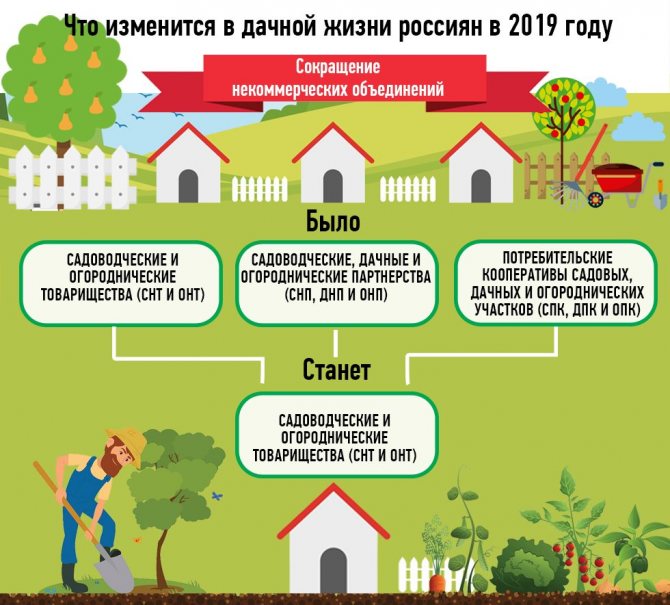
How to respond to changes
By becoming the owner of agricultural plots of SNT, DNP, citizens will now have to notify local authorities about planned construction on them. At the same time, the owners will not get off so easily with just a notification. The whole point is that you will need to receive a response from the mentioned authorities, which will state that the object planned for construction complies with all current standards.
Previously, it was necessary to obtain a construction permit, and this rule applied only to residential land. The innovations abolished such permission, replacing it with a notification, but now all permanent buildings, including dachas, fall under the category of objects requiring such notification.
Purpose: what can you do on the purchased plot?
On DNP land, 2 types of activities are allowed. This is running a personal subsidiary plot:
- Animal breeding;
- Horticulture;
- Floriculture.
The construction of a seasonal or permanent house for one family is obligatory for the DNP. You can register there permanently or temporarily.
Thus, DNPs are mainly created on agricultural lands. Dacha partnership is the most convenient form of association. Members of the organization in their areas can engage in any activity that is not prohibited by law. The construction of residential buildings, outbuildings, and the raising of animals and crops is allowed on the land.
What is SNT?
SNT is a gardening non-profit partnership. It has the same category as the dacha partnership, with the difference that it costs an order of magnitude more. The difference between DNP and SNT is that the latter has a higher land fertility score, and is also located in more environmentally friendly areas, has good transport accessibility and often paved roads. Another bonus is that they are often located in beautiful places.
Benefits of a gardening non-profit partnership
- The cost of a garden plot will be several times lower than that of an equivalent plot, but intended for individual housing construction.
- Territorial location outside major cities.
- Such land can only be used for gardening without constructing a residential building.
Disadvantages of this type of site
- Land owners in SNT will have to pay for utilities out of their own pockets. And not even the smallest amounts, since often bringing all the benefits of civilization into gardening is a complex process, and sometimes simply impossible.
- Difficulties may also arise with registration in a country house, due to its location on land intended primarily for the construction of agricultural crops. Although difficult does not mean impossible. With due persistence, you can achieve official registration.
- The main thing you need to know about SNT is that, even if you build a huge palace on the site, according to all documentation it will pass as a country house. What could become a problem if you might want to sell it, that is, its estimated value will be slightly lower than it could be.
